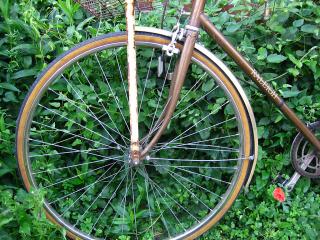Working in a complex of government buildings, I feel as though I should be part of a parade of men in dark pinstripe suits and bowler hats, walking in from a train platform every morning. There should be large steam-driven clocks around, and everyone should have a crisp newspaper under the arm.
Though thousands of people must work in the four towers, the place never actually seems like a flow of people is moving in or out. This is especially curious given how pretty much everyone can be expected to vanish within ten minutes before or after 5:00pm.
Perhaps there should be an annual ’emulate a scene from a film like Brazil‘ day.



